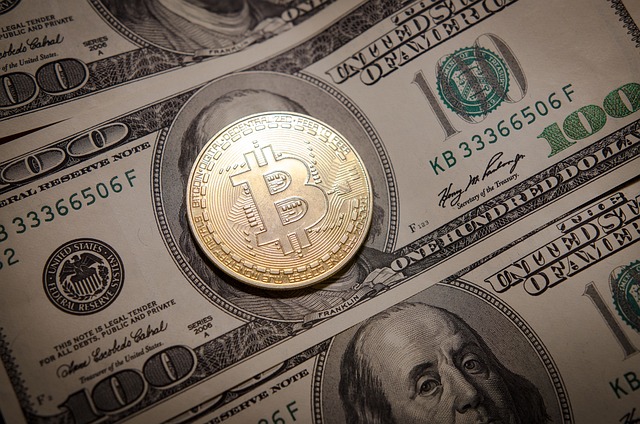Unveiling the Secrets of Crypto Wallets
Author: Jameson Richman Expert
Published On: 2025-01-29
Prepared by Jameson Richman and our team of experts with over a decade of experience in cryptocurrency and digital asset analysis. Learn more about us.
In the ever-evolving world of cryptocurrency, one question continues to perplex newcomers and seasoned traders alike: what is the best way to secure your digital assets? The answer often lies in a well-chosen crypto wallet. As we dive into the world of crypto wallets, we will explore their types, features, and the top options on the market today.

Understanding Crypto Wallets
At its core, a crypto wallet is a tool that enables users to store and manage their cryptocurrencies securely. Unlike a traditional wallet, which holds physical currency, a crypto wallet consists of a set of private and public keys that facilitate transactions. Understanding the importance of these keys is crucial for anyone looking to invest in or use cryptocurrencies.
The public key acts as your wallet's address, allowing others to send you cryptocurrency. In contrast, the private key is akin to a password; it grants you access to your funds and must be kept confidential. If someone obtains your private key, they can access your wallet and potentially drain it of its contents. Therefore, securing your private key is of utmost importance.
The Different Types of Crypto Wallets
Crypto wallets come in various forms, each with its own set of advantages and disadvantages. Here’s a breakdown of the most common types:
1. Software Wallets
Software wallets are applications or software that store your private keys on a device. They can be divided into two categories:
a. Desktop Wallets
Desktop wallets are installed on your computer. They provide a high level of security, provided your device is virus-free. Popular choices include Exodus and Electrum.
b. Mobile Wallets
Mobile wallets are applications on your smartphone that allow you to send and receive cryptocurrencies on the go. Think of wallets like Trust Wallet and Mycelium, which are user-friendly and convenient for everyday transactions.
2. Hardware Wallets
Hardware wallets are physical devices that safeguard your keys offline, making them less susceptible to hacks. They are ideal for long-term storage of substantial amounts of cryptocurrency. Leading hardware wallets include Ledger Nano S and Trezor.
3. Paper Wallets
A less common option, paper wallets involve printing your public and private keys on paper. While this method is highly secure if kept safe, it lacks the convenience of digital wallets and can be easily lost or damaged. Services like Bitaddress.org allow you to create a paper wallet.
Top Features to Look for in a Crypto Wallet
When choosing a crypto wallet, it's essential to consider various features that enhance security and usability. Here are some key features to keep in mind:
1. Security Measures
Look for wallets that offer two-factor authentication (2FA), seed phrases, and strong encryption. Security should be your top priority when managing cryptocurrencies, as the landscape is rife with hacks and scams.
2. User-Friendly Interface
A wallet should have an intuitive and easy-to-navigate interface, especially for beginners. A complicated platform can lead to mistakes, which could be costly. Wallets like Coinbase Wallet and Binance Pay excel in offering user-friendly experiences.
3. Multi-Currency Support
If you plan to invest in multiple cryptocurrencies, choose a wallet that supports various coins. This flexibility will save you the hassle of managing multiple wallets. Many software wallets, such as Atomic Wallet, enable seamless swapping between different currencies.
4. Backup and Restore Options
Ensure the wallet offers easy backup and restore functionalities. In the unfortunate event that you lose your device, you should still have a way to recover your assets using your seed phrase or backup file.

Why You Need a Crypto Wallet
With the rapid growth of cryptocurrencies, having a secure wallet becomes indispensable. Here's why:
1. Control Over Your Assets
Storing your cryptocurrencies on an exchange leaves you vulnerable to the platform's security measures. In contrast, a personal wallet gives you complete control over your funds.
2. Enhanced Privacy
Many wallets offer increased privacy features, allowing you to manage your assets without revealing personal information. This is particularly important in today's digital age, where data privacy is a growing concern.
3. Long-Term Storage
For those looking to hold cryptocurrencies long-term, hardware wallets provide the best option. They safeguard your digital assets against potential hacks and theft.
How to Choose the Right Wallet for You
Selecting the right crypto wallet largely depends on your individual needs and how you plan to use your cryptocurrencies. Here are some suggestions:
1. For Frequent Traders
If you trade regularly, consider a mobile or desktop wallet that offers quick access to your assets. Software wallets like Exodus or Atomic Wallet are excellent options for their usability and convenience.
2. For Long-Term Holders
If you intend to HODL (hold on for dear life) your investments, opt for a hardware wallet. These devices provide optimal security against online threats. The Ledger Nano X and Trezor Model T are among the best options.
3. For Beginners
Newcomers to the crypto world should choose wallets that are easy to set up and understand. Wallets like Coinbase or Binance are ideal as they often come with comprehensive guides and strong customer support.
Common Questions About Crypto Wallets
As you learn about crypto wallets, you may have several questions. Here are answers to some of the most commonly asked questions:
1. Are Crypto Wallets Safe?
Yes, they can be very safe if you take the necessary precautions. Always use wallets with strong security features and never share your private keys.
2. Can I Lose My Cryptocurrency?
Yes, if you lose access to your wallet (e.g., forgetting your seed phrase) or if your wallet is compromised, you could lose your cryptocurrency permanently. It's vital to keep backup information safely stored.
3. Do I Need Multiple Wallets?
Many users find it beneficial to have multiple wallets for different purposes. For example, you might use a mobile wallet for everyday transactions and a hardware wallet for long-term storage.

Getting Started with Your Crypto Wallet
Once you've chosen a wallet, you'll need to follow a few basic steps to get started:
1. Set Up Your Wallet
Download the wallet application or purchase your hardware wallet. Follow the installation instructions and create a new wallet. Make sure to securely store your seed phrase.
2. Fund Your Wallet
You can transfer cryptocurrency to your wallet from an exchange or another wallet by entering your public key. If you don’t have any crypto yet, consider purchasing some on a reliable exchange like Binance.
3. Start Trading or Holding
Now that your wallet is set up and funded, you can start trading or holding your cryptocurrencies as per your strategy.
If you're ready to dive into the world of cryptocurrency trading, consider signing up at Binance, one of the largest exchanges in the world.
The Future of Crypto Wallets
As cryptocurrency continues to grow in popularity, the tech behind wallets will also evolve. Expect innovations such as better transaction speed, enhanced security features, and increased compatibility with emerging cryptocurrencies.
Ultimately, the key to successfully navigating the crypto space is being informed and prudent in your wallet choices. By understanding the ins and outs of crypto wallets, you will be better positioned to protect your digital assets and make the most of this exciting financial revolution.
No matter where you are in your crypto journey, the right wallet is a critical component of your strategy. Do your research, choose wisely, and enjoy the world of cryptocurrencies!